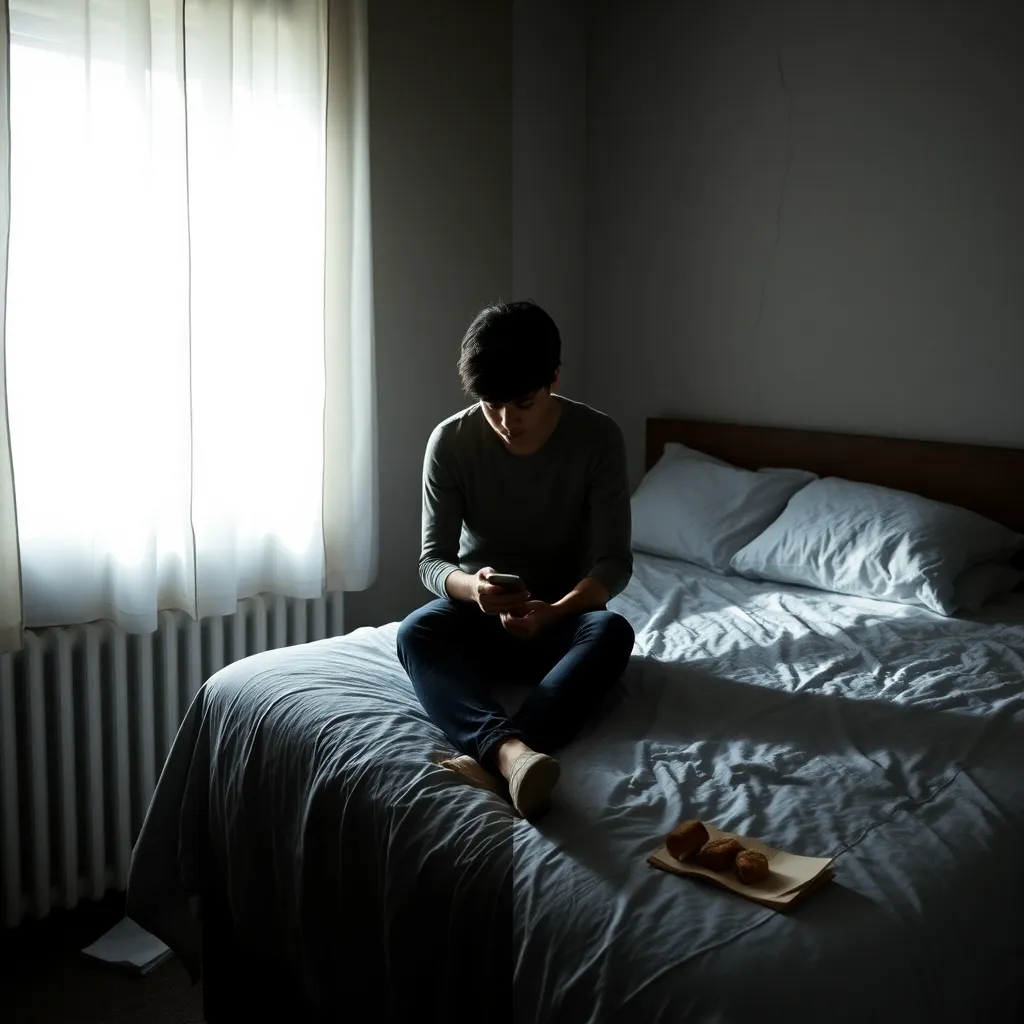Navigating the intricate dynamics of relationships can often feel like walking through an emotional maze. If you’ve ever found yourself questioning whether a partner’s actions are nurturing or detrimental to your well-being, you’re not alone. Recognizing when a relationship is designed to break you down rather than build you up is crucial for your emotional health. Everyone deserves to feel valued and supported, and understanding these signs can be the first step towards reclaiming your sense of self-worth.
This article delves into 13 telling signs that your relationship might be more harmful than beneficial. You will learn to identify subtle patterns of behavior that could be eroding your sense of self over time. These insights are not just about identifying problems but also about empowering you with the knowledge to make informed decisions about your emotional life. In exploring these signs, our aim is to provide you with a deeper understanding of relationship dynamics, helping you discern when it might be time to seek change for a healthier, more fulfilling future.
By the end of this article, you’ll have a clearer picture of what to watch out for and why it matters. Our goal is to shed light on behaviors that might otherwise be brushed off or misunderstood, ensuring that you feel supported in whatever steps you choose to take next. It’s important to approach these realizations with compassion for yourself, recognizing that everyone deserves a relationship that uplifts rather than diminishes their spirit. Let’s embark on this journey together, equipping you with the tools and awareness needed to foster relationships that truly honor your value.
1. Constant Criticism of Choices

When you find yourself facing *constant criticism* of your choices, it can feel like you’re being *undermined* at every turn. This pattern of behavior, where every decision is met with negativity, is often a way to *erode your confidence* and *create self-doubt*.
Imagine a scenario where you decide to pursue a new hobby, and your partner consistently belittles your interests. Such *demeaning comments* can slowly chip away at your sense of *self-worth* and *personal satisfaction*.
Experts note that *healthy relationships* should foster *support and encouragement*, not *criticism* and *disparagement*. Instead of tearing you down, a partner should be someone who *celebrates your choices* and helps you grow.
To address this, consider having an open conversation about how these comments make you feel. Focus on *expressing your emotions* without placing blame to foster a more *understanding dynamic*.
Ultimately, recognizing and addressing *constant criticism* is crucial for maintaining a *healthy relationship*. Remember, a partner should lift you up, not bring you down.
2. Frequent Dismissal of Feelings

In a relationship, it’s vital to feel seen and heard, yet when your partner consistently dismisses your feelings, it can start to chip away at your self-worth. You might express your concerns, only to be met with phrases like “You’re overreacting” or “It’s not a big deal,” which can lead to feelings of isolation and self-doubt.
Consider the example of a partner who rolls their eyes whenever you share something important, signaling your emotions are trivial to them. Over time, this behavior can make you question whether your feelings are valid, pushing you into a cycle of self-censorship.
Experts suggest that regularly dismissing a partner’s feelings is a subtle form of emotional manipulation. It creates a dynamic where one person’s reality is constantly invalidated, which can severely impact the emotional health of the relationship.
To counteract this, express clearly how these dismissals affect you, and set boundaries about what is acceptable in your interactions. Encourage your partner to engage in open dialogue and validate each other’s feelings, fostering a more empathetic connection.
Ultimately, recognizing and addressing the frequent dismissal of feelings is crucial to maintaining a healthy and respectful relationship. If your partner is unwilling to acknowledge this pattern, it may be time to reassess the dynamics of your relationship.
3. Manipulative Guilt Inducement

Experiencing frequent manipulative guilt inducement can wear down the foundation of any relationship. This occurs when one partner consistently makes the other feel responsible for their own emotions or actions, often twisting situations to make the other person feel at fault. Imagine a scenario where forgetting an anniversary becomes your sole blame for your partner’s bad week. Such tactics are designed to keep you feeling perpetually guilty and apologetic, preventing you from addressing your own needs or setting boundaries.
In real-world relationships, you might find yourself apologizing for things that aren’t your fault or constantly walking on eggshells to avoid conflict. This might lead you to question your own reality, doubting your feelings and perceptions. A partner might say, “I wouldn’t have gotten so upset if you had just done what I asked,” shifting blame onto you for their reaction. Recognizing these patterns is crucial, as they can erode self-esteem and foster an environment of emotional dependency.
To counteract manipulative guilt inducement, it is essential to assert your emotional boundaries clearly. Begin by calmly expressing how certain statements or actions make you feel, focusing on “I” statements to avoid sounding accusatory. For instance, saying, “I feel overwhelmed when I’m blamed for things out of my control,” can open up a dialogue that prioritizes mutual understanding. This reinforces your emotional well-being while encouraging a healthier interaction dynamic.
Ultimately, fostering a relationship where both partners feel heard and valued requires mutual respect and understanding. Addressing manipulative behaviors is not just about confronting your partner but also about nurturing self-awareness and resilience. By focusing on open communication and emotional honesty, you can build a partnership grounded in genuine care and respect. This ensures both individuals feel empowered and valued, creating a healthier and more fulfilling relationship.
4. Isolation from Loved Ones

One of the most insidious ways a partner may attempt to break you down is by isolating you from your loved ones. In these situations, you might find that your partner has slowly but surely cut off your connections to friends and family, making you feel more dependent on them for support.
Consider a scenario where a partner frequently insists that you spend holidays or weekends exclusively with them, subtly suggesting that your family doesn’t appreciate you. Over time, this undermines your relationships with those who genuinely care about you, leaving you feeling alone and vulnerable.
Experts emphasize the importance of maintaining a strong, independent support network outside of your romantic relationship. Having trusted friends and family members can provide a healthy perspective and help you recognize when a relationship is veering into unhealthy territory.
It’s crucial to recognize the signs of isolation early and take proactive steps to reconnect with your loved ones. Open communication and setting boundaries can re-establish those connections and strengthen your support network.
Understanding and addressing isolation can be challenging, but it’s an essential step toward a healthy relationship. Remember, any partnership should enhance your life, not diminish your connections to those who matter most.
5. Inconsistent Emotional Support

In relationships, having consistent emotional support is crucial for building a strong foundation. However, when a partner’s support becomes sporadic or unreliable, it can lead to feelings of confusion and instability. Imagine planning a special evening to share exciting news, only for your partner to dismiss your joy without a second thought. This lack of consistent support can make you question your worth and place in the relationship.
It’s not uncommon to notice a pattern where your partner is only supportive when it’s convenient for them. Such behavior can signal a deeper issue, where emotional support is used as a tool to control or manipulate rather than nurture. In healthy relationships, partners should strive to be each other’s steadfast allies, offering unwavering support through both good times and bad.
Consider seeking insight from a relationship expert who can help identify these patterns and suggest ways to address them effectively. For instance, setting clear expectations about emotional availability can be a vital step toward improving support dynamics. When you communicate your needs openly, you pave the way for a more balanced and supportive partnership.
Ultimately, consistent emotional support is not just about being present during a crisis but being a reliable presence in everyday life. A partner who is genuinely invested in the relationship will make the effort to be there emotionally, reinforcing trust and connection. By prioritizing emotional support, both partners can thrive, creating a nurturing environment where love can flourish.
6. Unjust Blame Shifting

When you find yourself constantly feeling guilty in your relationship, it might be a sign of unjust blame shifting. In some partnerships, one partner may regularly shift the blame onto the other to avoid taking responsibility for their own actions.
Consider a scenario where your partner consistently blames you for their mood swings or work stress. This manipulation tactic can leave you feeling inadequate and erode your self-esteem over time.
To counteract this, it’s important to set healthy boundaries and communicate how this pattern is impacting you. Engaging in open dialogues about shared responsibilities can help alleviate the burden of unwarranted blame.
Experts suggest that recognizing these patterns early can prevent further emotional damage. By understanding that blame is being unfairly redirected, you can begin to reclaim your sense of self-worth.
Ultimately, a healthy relationship relies on mutual understanding and accountability. If you notice a routine of unjust blame shifting, addressing it is crucial for your emotional well-being.
7. Diminished Self-Confidence

When you’re constantly exposed to unjust blame shifting, it can gradually erode your self-confidence. You may start to doubt your own perceptions and abilities, feeling as though you’re always in the wrong.
Consider a scenario where you’re consistently criticized for things beyond your control, like a partner blaming you for their bad day. Over time, this can lead to a significant diminishment of your self-worth, making you question your value in the relationship.
Rebuilding self-confidence requires conscious effort and often, the support of trusted friends or a therapist. It’s crucial to remind yourself of your past achievements and strengths, allowing you to regain a sense of personal power and autonomy.
Psychologists often suggest setting small, achievable goals to slowly rebuild confidence. This practice not only affirms your capabilities but also helps create positive momentum in your life.
The key takeaway here is to recognize the impact of blame and criticism on your confidence and actively work to counteract it. By nurturing self-belief and seeking supportive environments, you can reclaim your inner strength and navigate towards healthier relationship dynamics.
8. Neglect of Personal Achievements

In relationships where you’re being broken down, your personal achievements might be met with **indifference** or even **hostility**. Imagine sharing a proud moment about a work promotion, only to be met with a dismissive shrug or an offhand comment that deflates your excitement. This pattern can lead to a gradual erosion of your **self-worth**, making you feel that your **successes** are insignificant.
Often, individuals in such dynamics find themselves **downplaying** their achievements around their partner. This can happen in subtle ways, like avoiding discussions about your career milestones or even feeling guilty for your own success. Over time, this behavior can become a habit, further **diminishing** your self-confidence and sense of **individuality**.
In some cases, partners may even try to **outshine** your achievements with their own stories, subtly suggesting that your accomplishments are less important. This can create a toxic cycle where you are constantly seeking approval and validation that never comes. It’s important to recognize these patterns and **affirm your own successes**, independent of your partner’s reactions.
Experts suggest that partners who neglect or undermine your achievements are often **projecting their own insecurities** and fears. It’s crucial to maintain a **support network** outside of your relationship that celebrates your successes with you. Sharing your achievements with friends or family who genuinely appreciate and support you can help you retain a sense of pride and **self-validation**.
Ultimately, your achievements are a **testament** to your hard work and dedication, and they deserve to be celebrated. By prioritizing self-acknowledgment and surrounding yourself with supportive individuals, you can **reclaim** your confidence and begin to rebuild your sense of self-worth. This awareness is the first step towards nurturing a more balanced and **fulfilling** relationship.
9. Belittling in Public Settings

In a healthy relationship, partners should uplift one another, but unfortunately, some individuals may resort to belittling their partner in public. This behavior often stems from a desire to exert control or feel superior, leaving the victim feeling small and disrespected. Imagine being at a dinner party where your partner makes jokes at your expense, laughing along with others while you feel embarrassed and hurt. Such experiences can erode self-esteem and create a wedge in the relationship.
Public belittlement is particularly destructive because it involves humiliation in front of others. This can make the victim feel isolated and unsupported, as if their partner’s opinion is more valid than their own. One might find themselves dreading social gatherings, knowing that their partner might seize the opportunity to criticize or mock them. This behavior is not only disrespectful but can also be a form of emotional abuse.
An effective approach to addressing this issue involves setting firm boundaries. It’s crucial to have a private conversation with your partner, expressing how such comments make you feel, and request that they stop immediately. Drawing clear lines about what is acceptable can help create a more respectful and supportive environment. Additionally, seeking professional guidance, such as couples therapy, can provide insights and strategies for improving communication and understanding.
Ultimately, a partner who truly values you will strive to build you up, not break you down. Recognizing the signs of public belittlement is the first step towards addressing the behavior and advocating for a healthier, more respectful dynamic. Remember, you deserve to be with someone who treats you with kindness and dignity, both in private and public settings.
10. Undermining Your Independence

When someone is intentionally undermining your independence, it’s a red flag for a manipulative relationship. They might subtly question or criticize your ability to handle certain tasks, making you doubt your own competence and strength.
Imagine a partner who constantly insists on accompanying you to places you’d normally go alone, claiming it’s for your safety or convenience. While this might seem caring on the surface, it can erode your sense of autonomy over time, making you feel dependent on them for things you used to enjoy doing independently.
Experts warn that such behavior is often a tactic to make you more reliant on them emotionally and practically. By slowly chipping away at your confidence, they increase their control over your life, making it more difficult for you to make decisions without their input.
To counteract these dynamics, consider confiding in a friend or therapist who can provide an outside perspective and support. This can help reinforce your self-belief and remind you that you are capable of making your own decisions, free from undue influence.
11. Demanding Endless Compromise

Feeling the need to constantly make compromises in a relationship can be exhausting. When your partner demands you to always bend to their will, it might be a sign that they’re using compromise as a tool to control you.
Imagine the scenario where you constantly have to change your plans to accommodate your partner’s schedule. If this is a regular occurrence, it might indicate that your autonomy is being disregarded, slowly breaking down your sense of self.
Healthy relationships are built on mutual respect and understanding, where both partners are willing to make sacrifices. When compromise becomes a one-sided expectation, it’s crucial to reassess the balance and ensure that both parties are equally valued.
Experts suggest actively communicating your needs and establishing clear boundaries. This not only helps in maintaining your independence but also ensures that your relationship remains supportive and nurturing.
Recognize the importance of standing firm on issues that matter most to you. By doing so, you empower yourself and foster a healthier, more equitable relationship dynamic.
12. Ignoring Personal Boundaries

Setting and respecting personal boundaries is an essential part of any healthy relationship. When a partner consistently disregards these boundaries, it can feel like a continuous erosion of your self-worth. Consider a scenario where one partner is always checking the other’s phone, despite discussions about privacy. This act is not just a breach of trust but also a clear violation of personal space.
Another example might be a partner who insists on attending every social event with you, even when you express the need for some personal time. This constant disregard for your wishes can lead to feelings of suffocation and resentment. Experts agree that maintaining boundaries is crucial for personal growth and mutual respect. In fact, Dr. Henry Cloud, a renowned psychologist, emphasizes that boundaries define where you end and another person begins, which is vital for relationship health.
Partners who ignore boundaries often do so to exert control, making you feel like you need their approval. This dynamic can create a power imbalance, leaving you feeling diminished and undervalued. To address this, start by clearly communicating your boundaries and discussing any violations calmly and assertively. Consistently reinforcing your limits shows that you value yourself and expect the same respect from others.
Ultimately, respecting personal boundaries is about creating a balanced and fulfilling relationship. When both partners honor each other’s limits, it fosters a sense of security and mutual respect. This allows love and connection to flourish, free from the constraints of control and disrespect. Reflect on your boundaries and take steps to ensure they are both respected and upheld.
13. Withholding Affection as Punishment

When affection is withheld as a form of punishment, it can feel like a deep betrayal. This behavior is often used as a way to exert control, making you feel unworthy or undeserving of love and care.
Consider a scenario where your partner suddenly stops being affectionate because of a disagreement. This tactic can foster insecurity, leaving you questioning what you did wrong and striving to regain their approval.
Experts note that using affection as a bargaining chip is a red flag for emotional manipulation. Healthy relationships require a continuous flow of love and kindness, even in times of conflict.
To address this, open communication can be pivotal. Discuss how this behavior impacts your feelings and work together to establish healthier patterns.
Breaking the cycle of withholding affection requires mutual commitment and understanding. Remember, a loving relationship thrives on unconditional support and genuine emotional connection.
Conclusion: Creating Beautiful Outdoor Spaces
In recognizing the subtle signs of a relationship that might be eroding your self-worth, we’ve explored critical concepts such as manipulation, constant criticism, lack of support, and emotional neglect. These indicators, along with others like controlling behavior and unreciprocated effort, point to a dynamic that can chip away at your confidence and happiness. Awareness is the first step toward change, and understanding these signs empowers you to take charge of your emotional well-being.
As an actionable next step, take a moment to reflect on your relationship, identifying any signs that resonate with your experience. Open a dialogue with your partner or a trusted friend about your feelings and observations. This conversation can be a catalyst for change, steering your relationship toward a healthier, more supportive path.
Remember, relationships are a journey of growth and understanding. Bookmark this article to revisit these insights whenever you need guidance. By doing so, you’re arming yourself with the knowledge to cultivate stronger, more fulfilling relationships. Looking ahead, envision a future where your relationships are built on mutual respect, understanding, and love. Your proactive steps today lay the foundation for a happier tomorrow.
